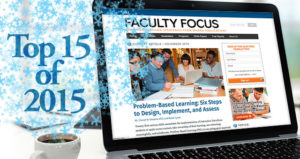
Faculty Mentoring Undergraduates: The Nature, Development, and Benefits of Mentoring Relationships
Editor’s Note: This is an excerpt of a work that is licensed under a Creative Commons Attribution 4.0 International License. To read the article in its entirety, visit the Teaching & Learning Inquiry website. http://tlijournal.com/tli/index.php/TLI/article/view/125/77
Educational research shows that close student-faculty interaction is a key factor in college student learning and success. Most literature on undergraduate mentoring, however, focuses on planned programs of mentoring for targeted groups of students by non-faculty professionals or student peers. Based on the research literature and student and faculty testimony from a residential liberal arts college, this article shows that unplanned “natural” mentoring can be crucial to student learning and development and illustrates some best practices. It advances understanding of faculty mentoring by differentiating it from teaching, characterizing several functional types of mentoring, and identifying the phases through which a mentoring relationship develops. Arguing that benefits to students, faculty, and institutions outweigh the risks and costs of mentoring, it is written for faculty who want to be better mentors and provides evidence that administrators should value and reward mentoring.









